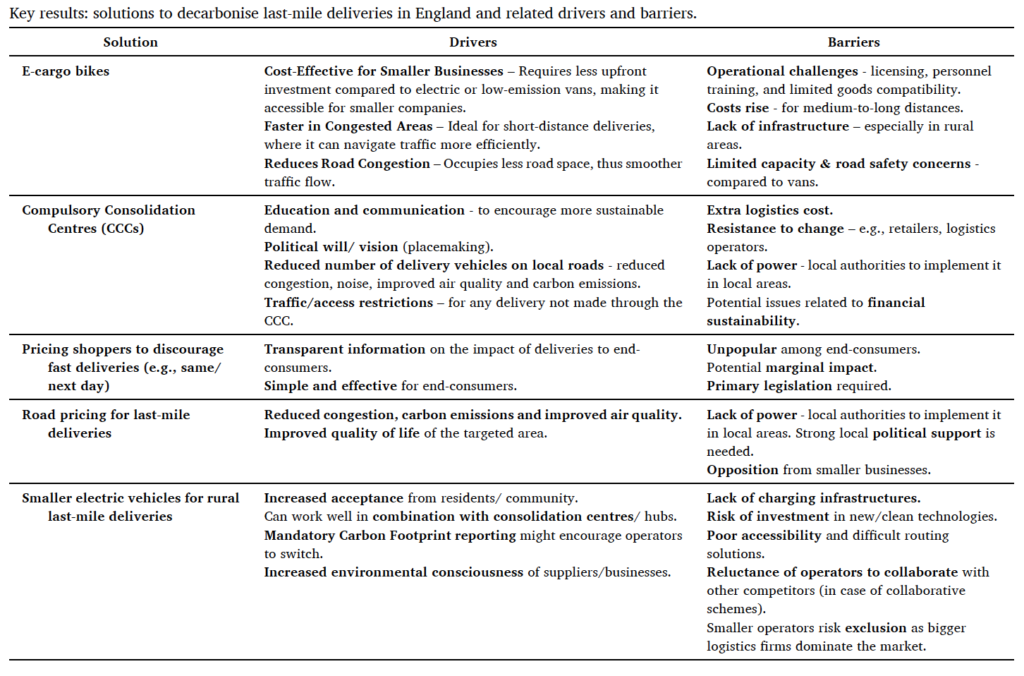A new research paper examines the views of 35 local authorities in England on potential solutions for decarbonizing last-mile parcel deliveries, focusing on the perceived challenges and drivers of implementation. Using co-design and participatory methods, the study engaged stakeholders with diverse expertise in a back-casting process to develop actionable strategies for reducing emissions. The proposed measures were presented and stress-tested with 25 councillors to assess alignment with political will.
This paper aims to understand how to decarbonise local freight in England. It explores the perspectives of local authorities regarding (i) challenges and opportunities for more sustainable and innovative solutions for last-mile deliveries, (ii) potential drivers and barriers to implementation, and (iii) actions that need to be undertaken to implement the solutions and drive the transition toward a net-zero local freight system.

Findings suggest that behaviour change and collaborative delivery schemes may offer greater carbon reduction potential than new clean technologies, despite being more complex to implement and less politically attractive. The study also highlights the critical role of governance, noting that limited power, capacity, and freight-specific capabilities at the local level remain significant barriers.
This paper illuminates local authorities’ complexities and challenges in decarbonizing last-mile deliveries. Despite increasing pressure to reduce carbon emissions, the study reveals substantial gaps in knowledge, resources, and governance frameworks at the local level. Freight decarbonisation remains underdeveloped, as most local transport planning has traditionally prioritised passenger mobility. These challenges are compounded by a lack of reliable data on freight movements, limiting authorities’ ability to make informed decisions and design targeted interventions.
The paper also highlights a disconnect between national ambitions and local implementation realities. While the UK’s Transport Decarbonisation Plan outlines bold objectives, it falls short in offering concrete guidance tailored to local governments’ specific constraints and responsibilities. To accelerate the transition to net-zero last-mile logistics, the paper recommends strengthening stakeholder collaboration, clarifying governance responsibilities, integrating freight into political agendas, applying systems thinking in planning, and promoting end-consumer behavior change.
